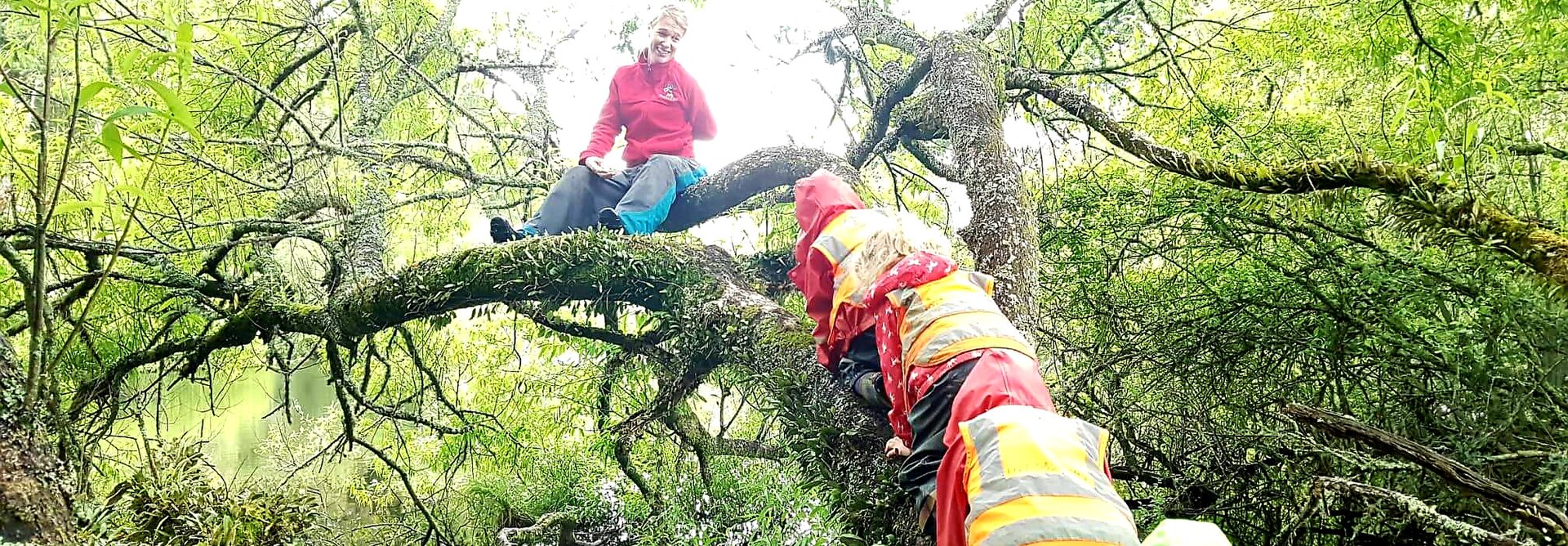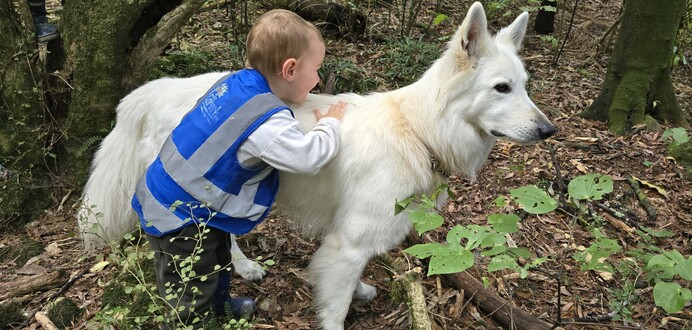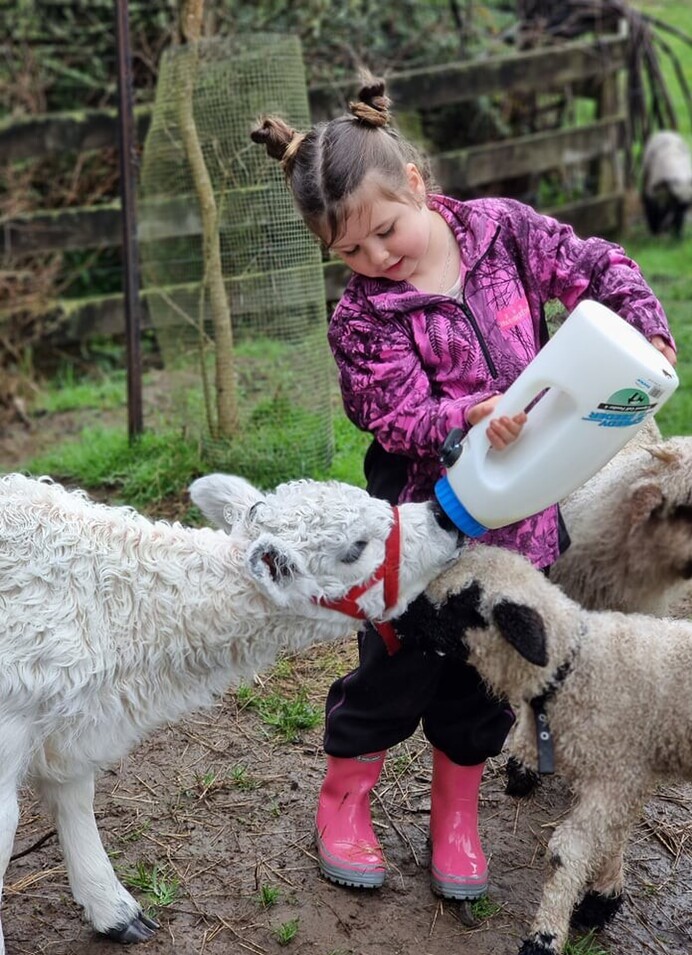WC Fields, the American comedian warned - "Never work with children or animals". No doubt he was talking about being upstaged by creatures far cuter and cleverer than himself, but... We do both - and we love it!
Biophilia—the innate human affinity for nature—extends to a profound connection with animals, playing a vital role in our tamariki development. Interacting with Kararehe fosters empathy, compassion, and emotional resilience, while also encouraging outdoor play and physical activity. This connection nurtures curiosity about the natural world, enhancing cognitive growth and fostering a sense of responsibility.
By developing a love for kararehe tamariki strengthen their bond with nature, promoting environmental stewardship and a lifelong respect for all living things.
Engaging with kararehe (animals) aligns seamlessly with the principles of Te Whāriki, Aotearoa New Zealand’s early childhood education curriculum. It supports tamariki in their empowerment, holistic development, sense of belonging, and exploration.
For example, when tamariki feed farm kararehe, they develop fine motor skills and a sense of responsibility or engaging in activities like insect hunts sparks curiosity and enhances observational skills, leading to discoveries that aid cognitive development.
Caring for kararehe helps tamariki build confidence and autonomy as they make decisions and learn to understand animal behaviour. This interaction not only enhances emotional growth, empathy, and compassion but also encourages cognitive and physical development through activities like grooming and feeding. For instance, tamariki might learn problem-solving skills while figuring out the best way to clean a shelter. It reinforces the tamariki connection to their environment and community, strengthening their place within the whānau and the natural world.
Kararehe provide a rich context for enquiry, igniting curiosity and a passion for exploration. Through these experiences, tamariki embrace the Māori value of kaitiakitanga—environmental guardianship—by learning to be responsible stewards of the natural world and understanding how their actions impact other living beings. Incorporating traditional Māori practices related to kararehe care and environmental stewardship further enriches this learning. This directly connects to one of our core kaupapa here at The Forest, where tamariki are encouraged to uphold a reciprocal kaitiaki relationship with Papatūānuku, fostering a deep sense of respect and responsibility for the environment, which in turn will encourage tamariki to teach their own community to continue the journey of healing and caring for Papatūānuku.
When we break this all down into how it fits with our national curriculum, Te Whāriki, we gain a deeper understanding of the learning that can occur alongside animals:
Holistic Development (Kotahitanga): Caring for kararehe supports holistic growth by enhancing emotional, physical, social, and cognitive skills. Activities like feeding and grooming build motor skills, while observing Kararehe promotes curiosity and problem-solving. For example, tamariki learn empathy and resilience through their interactions with animals.
Belonging (Mana Whenua): Learning with kararehe strengthens tamariki's sense of belonging and connection to their environment. It helps them understand their place in the community and the interconnectedness of life, deepening their identity within their whānau and the natural world.
Contribution (Mana Tangata): Taking responsibility for kararehe teaches tamariki to contribute to others' well-being, boosting their self-confidence and sense of empowerment. This aligns with Te Whāriki's goal of encouraging meaningful contributions to the community and nature.
Exploration (Mana Aotūroa): Kararehe sparks curiosity and exploration, leading to questions and discoveries that aid cognitive development. Observing and caring for kararehe enhances problem-solving and critical thinking, connecting tamariki with different aspects of the natural world.
Empowerment (Whakamana): Working with kararehe allows tamariki to make decisions and see the impact of their efforts, fostering confidence and competence. This supports Te Whāriki's principle of nurturing confident, capable learners.
Kaitiakitanga (Guardianship of the Environment): Interacting with Kararehe teaches tamariki to practice kaitiakitanga, showing respect and care for the environment. This cultural value promotes environmental sustainability and a lifelong respect for all living things.
The integration of animals into our curriculum enriches tamariki educational journey, preparing them to be confident, capable, and compassionate individuals who respect and care for all living things.
We are incredibly lucky to have loads of animal friends - our little herd of Valais Blacknose sheep, our 8 chickens who supply us with eggs for our ahi-cooking, our three ponies who tirelessly teach us to ride and drive the cart, our gorgeous hairy highland cow Marigold, our cheeky goat Oreo, four beautiful dogs who are always up for cuddles and love, our hungry pig Barney and our four happy ducks who roam in The Grove waiting for gifts of wheat - not to mention our stream full of friendly eels who love to be fed and the prolific native birdlife, insects and forest creatures! Our animals are our kaiako too, and they provide endless opportunities for interactions that promote learning and development for our precious ākonga.
At The Forest, we are dedicated to nurturing this profound connection with nature and kararehe, ensuring that our tamariki grow into responsible stewards of the environment and active, engaged members of their communities. The lessons learned through these interactions will resonate throughout their lives, equipping them with the values and skills necessary to contribute positively to the world around them.


